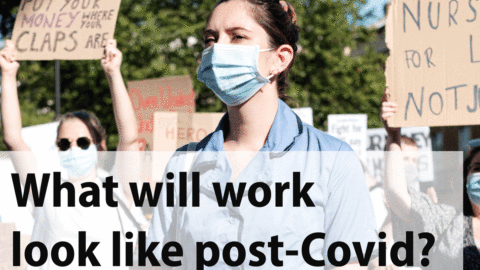What sort of tax is IR35 going to be seen as?
IR35 was introduced several years ago because HMG and HMRC took the view that Independent Workers were not paying the right amount of tax and were taking tax advantages that were not compatible with a status that was the same as directly employed workers.
Whilst there was – and is – some truth in this. Such a broad-brush approach was unfair in varying degrees for varying groups of Independent Workers. However, since the introduction of IR35, things have changed; and changed dramatically.
They have changed for organisations, for individuals, for the country and for Government. We have seen – and will increasingly see – more change – in the creation of dominating, radical changes in employment patterns, attitudes, aspirations and needs – within organisations just as much as for Individuals. The mood and narrative will increasingly be about entrepreneurial endeavour, innovation, flexibility, the need to react quickly. Its primary purpose will be the creation of greater national wealth (also known as Growth) – all needed to pay for the growing demands placed on Government. It calls for individuals to effect this and individuals collaborating with and within organisations.
They need to be taxed fairly – and without ambiguity and muddle. Changing the rules for IR35 is a great place to start!
Here is Working Free’s solution.
The Working Free IR35 Solution – 28.2.23
The government should create a new type of limited company which any independent worker, domiciled in the UK, may set up and trade through. Normal rules for limited companies apply except that this type is forbidden to pay dividends and remuneration to family members not formally employed in the business and taxed. They would file quarterly reports – virtually identical to the VAT system – and pay over PAYE and NI relating to remuneration paid out by the company during that period. In this way, legitimate expenses – including pension contributions – can be charged in accordance with company and tax law and the engaging client companies have no responsibilities in this regard. If, and when wound up, any surplus would be deemed to be income of the Directors at the time of winding up and taxed accordingly, following the principle that all retained earnings from whatever source will eventually be taxed as income and as appropriate. (Working Free Ltd – 28.2.23).
If you would like to read our previous comments on IR35, please read on ………………..
This short Opinion Piece was originally published as IR35 is going to be seen as a BAD TAX! Since then, mainstream opinion seems to have been shifted – or shifted on its own accord – towards a more nuanced assessment. So we thought we also ought to adopt a more nuanced approach – maybe seeking circumlocution to avoid total desertion of our previous and long-held convictions!
Importantly – and surely no-one can disagree with this – is that if it looks like a duck – and if it waddles and if it quacks, then it is almost certainly a duck. In other words, if a piece of work looks the same as permanent payrolled work – in other words “disguised employment” – then that is what it should be treated as.
But the real argument is elsewhere. The impact of Covid, Brexit, technology and shifting personal attitudes has sown the seeds of major change towards – as always – what more workers want and what more businesses want. This is the bigger picture. Have a look at Diaspora Business Networks.
In our original piece we wrote this:-.
Post Covid businesses and employment conditions will make this more obvious as the number of Independent Workers will increase substantially mainly due to higher levels of unemployment – the longevity or amount of which is not currently known. At the end of 2020, unemployment was 5.1% – and the Bank of England are now predicting this to move to 7.75%. The logic – at worst – is that it is preferable to be an independent worker with no work – but trying – rather an unemployed worker sitting at home watching Flog It on television. At best, it could – should – be a life- changing crossroads to something permanently better.
Actually, we never quite got to the widely forecasted 5.1% but gradually came down to the current 4.7% and look highly unlikely to reach the 7.75% forecasted by many. However, we do need to reserve judgement at this time – the variables are changing all the time. Closer study of the ONS Employment Statistics is recommnended.
Nevertheless, IR35 decisions are largely based on subjective judgement guidelines – argued differently by parties with different agendas – but with the final arbiters now being the engaging clients and/or HMRC. Both these groups – who invariably opt for “advising” going on the payroll – can’t possibly want to be involved in these contrived and unwanted activities.
What we have learnt about current government knowledge about this sector of the UK workforce has to be based on the hesitant, piecemeal and contentious ways in which it has approached supporting financially the self-employed over the past year. Given all these huge changes now afoot and the current ambitious and exciting future now being promoted for the global and enterprising UK and all its go-getting and re-energised peoples, it has to be timely to change IR35. Building Back Better needs to use all the talents. Genuine gigworkers don’t want protection. They don’t want jobs. They want work.
Best Regards
Charles Russam





